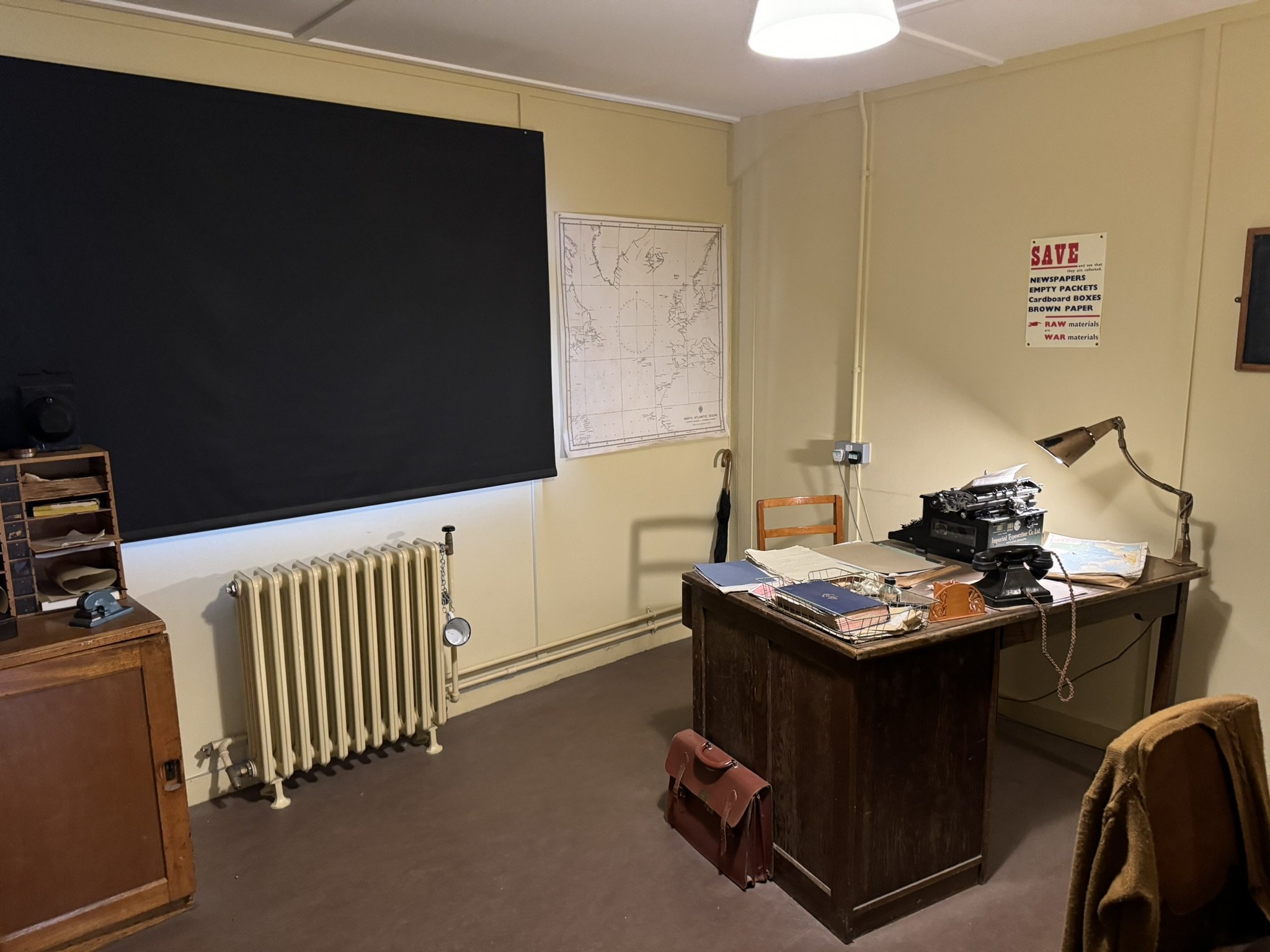A Visit to Bletchley Park
There are few museums I’ve been to where I left with both a greater understanding of history and a feeling that I barely understood what actually happened there. Bletchley Park remains an enigma for me. This was the place where Alan Turing, father of the electronic computer, helped crack the German enigma machines in WWII, saving countless lives. It is the place where thousands of people, including many women, helped decode and decrypt intercepted messages.
The estate house is beautiful, while the huts outside are strictly utilitarian. The site was chosen because it was largely abandoned at the start of WWII and was far enough away from London to be an unlikely target for bombing or espionage. Had the Germans understood the vital work being done here, it would have undoubtedly been on the bombing list.
Alan Turing’s Office at Bletchley Park
Like many places you read about and see in the movies, the buildings in the compound were smaller than expected. The huts, actually cinderblock masonry, are largely single-story buildings that must have been extremely cold in the winter and stifling in the summer. Each room feels big with only a couple of people inside, but when you see the photos of dozens of women typing away the spaces look claustrophobic. It is tough to imagine that thousands of people worked in this compound, and the level of secrecy that was constantly present.
The process of decoding and decrypting messages is explained in detail in the exhibits, along with the overall encryption theory that stands behind the mesmerizing machines. This is a place that would have been surrounded by paper cards of various sorts, and where the databases they built would have made the best old-school librarian’s card system seem quaint. It is hard to imagine the types of minds needed to make this place work, to make sense out of nonsense – and in the process creating yet more paper and chaos. The chaos was only tamed by the pure determination of the women who worked so tirelessly in these walls.
Ultimately, the workers at Bletchley Park saved countless lives and undoubtedly helped win the war in the Atlantic at the very least. Winning the war in the Atlantic meant Britain had food and bullets, and that troops from the United States, Canada and elsewhere were able to make it safely to the UK and eventually across the channel to Normandy. It is a place where the methods may be indecipherable to someone without the brilliance of the best math nerds, but with an impact that is difficult to overstate.
